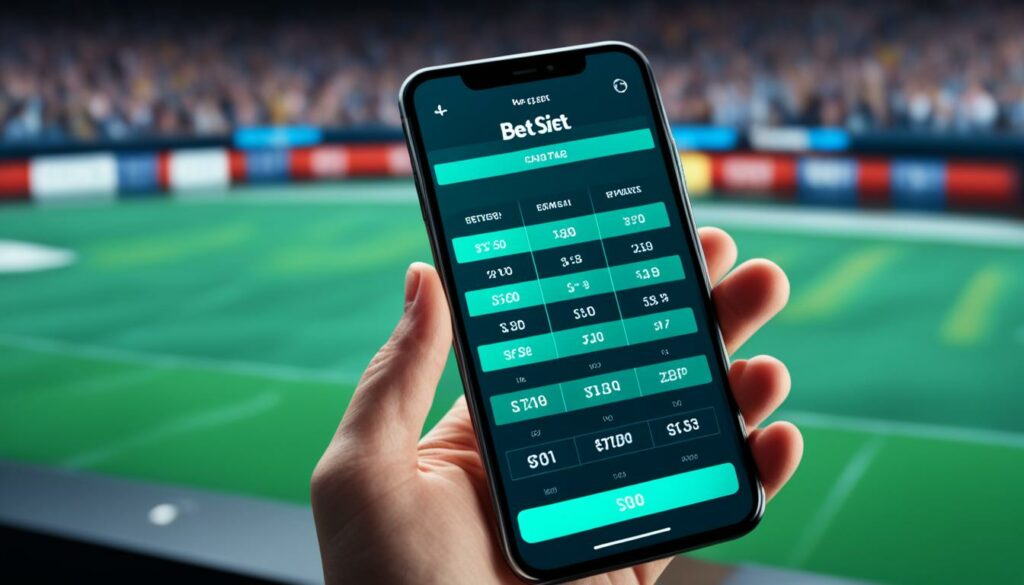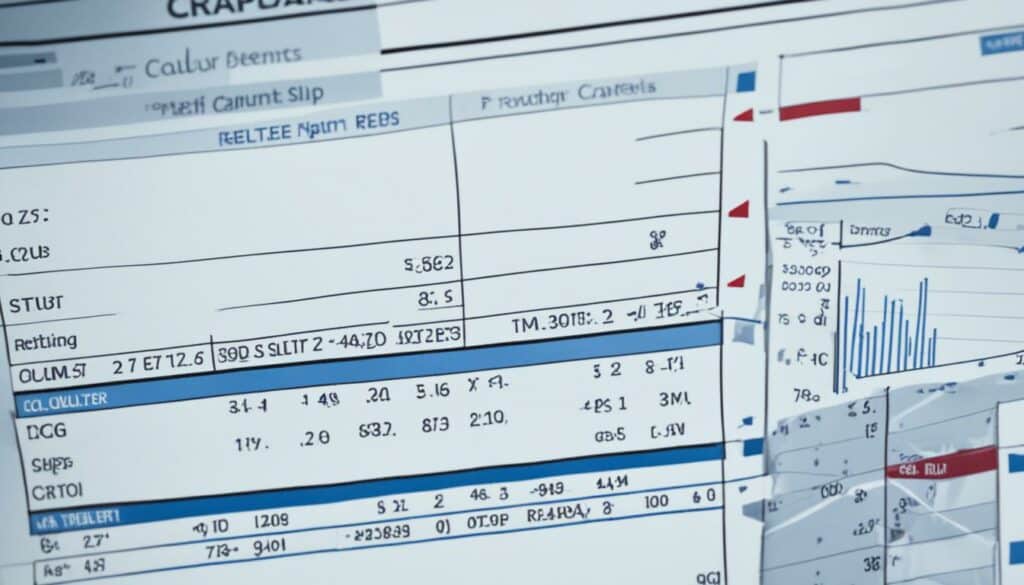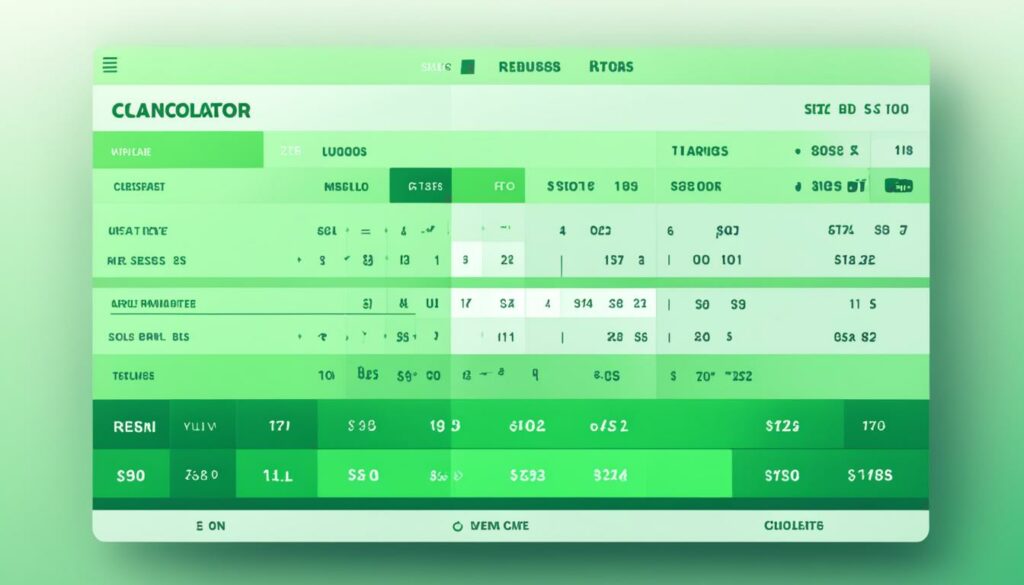Welcome to our comprehensive guide on how to work out betting returns! Whether you are a seasoned bettor or a beginner, calculating your betting returns is a crucial skill. In this article, we will provide detailed notes about calculating betting returns and introduce you to useful tools like the betting return calculator.
Understanding how to calculate your betting returns is essential for making informed betting decisions. By knowing the potential payouts, you can assess whether a bet is worth making. Our guide will cover the process step-by-step and provide insights into different types of bets, odds formats, and strategies for maximizing profitability.
Whether you prefer decimal, fractional, or moneyline odds, this guide will help you convert them into probabilities. We will break down the calculations for single bets and explain how to handle more complex bets like accumulators and parlays. Additionally, we will discuss the concept of each-way betting and its impact on your returns.
While calculating betting returns manually can be done with a bit of math, there are also online tools available. We will show you how to utilize betting return calculators effectively, saving you time and ensuring accurate results. By inputting the odds and the amount you wager, these calculators will provide you with the potential winnings.
Finally, we will share strategies for successful betting profitability. From effective bankroll management to researching statistics and analyzing betting trends, our tips will give you an edge in the competitive world of sports betting. By combining the right calculations with strategic decision-making, you can improve your overall profitability.
So, if you’re ready to dive into the world of calculating betting returns, let’s get started! Gain a deep understanding of the process, utilize useful tools like the betting return calculator, and implement effective strategies for a successful betting journey. Stay tuned for detailed insights and expert tips to enhance your betting experience.
Understanding Betting Odds
Before diving into calculating betting returns, it’s important to understand how betting odds are presented and interpreted. The odds provided by bookmakers represent the probability of a particular outcome in a sports event.
Types of Odds Formats
There are different types of odds formats used in sports betting:
- Decimal Odds: This format represents the potential payout, including the initial stake. For example, odds of 2.50 mean that for every $1 wagered, you have the potential to win $2.50.
- Fractional Odds: This format is common in the UK and represents the potential profit relative to the stake. For example, odds of 3/1 mean that for every $1 wagered, you have the potential to win $3 in profit.
- Moneyline Odds: This format is prevalent in the United States and indicates the amount of money you need to bet to win $100 or the amount you win for a $100 wager. Positive moneyline odds represent the potential profit on a $100 stake, while negative odds indicate the amount you need to bet to win $100.
Converting Odds to Probabilities
To accurately calculate your betting returns, you need to convert the odds into probabilities. This allows you to assess the likelihood of a particular outcome happening. Here’s a general formula to convert odds to probabilities:
Probability = (1 / Decimal Odds) * 100
For example, if the decimal odds are 2.50, the probability would be (1 / 2.50) * 100 = 40%.
Converting fractional odds to probabilities can be done by dividing the denominator by the sum of the numerator and denominator and then multiplying by 100.
Moneyline odds can be converted into implied probabilities using different formulas depending on whether the odds are positive or negative. Consult an odds conversion chart or use an online calculator for accurate conversions.
Having a clear understanding of how betting odds are presented and the ability to convert them into probabilities will lay the groundwork for accurate calculations of your potential returns.
Example Probability Conversion Table:
| Odds | Decimal | Fractional | Implied Probability (%) |
|---|---|---|---|
| 2.00 | 1/1 | 50% | |
| 3.00 | 2/1 | 33.33% | |
| 4.50 | 7/2 | 22.22% | |
| 1.50 | 1/2 | 66.67% |
Simple Betting Return Calculation
In this section, we will guide you through the step-by-step process of calculating your betting returns for various types of bets. Whether you are placing a single bet or trying your luck with multiple bets like accumulators and parlays, understanding how to calculate your potential winnings is crucial. Let’s dive into the details now.
Calculating Single Bet Returns
When it comes to calculating the potential payout for a single bet, you will need to consider the odds offered by the bookmaker and the amount you wager. The formula for calculating your potential winnings is:
Wager Amount x (Odds + 1)
For example, if you bet $100 on a tennis match with odds of 2.5, your potential winnings would be:
$100 x (2.5 + 1) = $350
Multiplied Returns with Accumulators and Parlays
If you’re feeling confident and want to increase your potential winnings, you can combine multiple selections into a single bet, known as an accumulator or parlay. To calculate the potential payout for an accumulator bet, you need to multiply the odds of all the selections together and then multiply it with your wager amount.
Let’s say you placed a $50 accumulator bet with three selections, each with odds of 2.0:
$50 x (2.0 x 2.0 x 2.0) = $400
If all three selections win, you would receive a payout of $400.
The Impact of Each-Way Betting
Each-way betting is commonly used in horse racing and golf, allowing you to cover both the win and place outcomes. When calculating potential winnings for each-way bets, you will need to divide your wager amount into two parts: the win part and the place part. The win part is calculated using the same formula as a single bet, and the place part is calculated based on a fraction of the odds.
For example, if you placed a $50 each-way bet on a horse race with odds of 5.0 and ¼ odds for the place, your potential winnings would be:
Win part: $50 x (5.0 + 1) = $300
Place part: ($50 x 5.0) ÷ 4 = $62.50
Total potential winnings: $300 + $62.50 = $362.50
Now that you have a solid understanding of how to calculate your betting returns for different types of bets, you can make more informed decisions and maximize your winnings. Remember to always consider the odds offered and the amount you wager to determine your potential payout.

Example:
Let’s take a look at an example to further illustrate the concept of calculating betting returns:
| Selection | Outcome | Odds |
|---|---|---|
| Manchester United | Win | 2.0 |
| Liverpool | Loss | 3.5 |
| Chelsea | Win | 1.8 |
Suppose you place a $100 accumulator bet on these three selections. To calculate the potential payout, you would multiply the odds together:
(2.0 x 3.5 x 1.8) = 12.60
Next, multiply the result by your wager amount:
$100 x 12.60 = $1,260
If all three selections win, you would receive a payout of $1,260. However, keep in mind that if any of the selections lose, your entire bet would be considered a loss.
Advanced Betting Return Analysis
Once you have mastered the basics of calculating your betting returns, it’s time to take your analysis a step further. Understanding the potential outcomes of your bets is crucial for making informed decisions and maximizing your long-term profitability. In this section, we will explore different scenarios and strategies to help you analyze your betting outcomes with confidence.
Value Betting: Finding Overpriced Odds
One advanced concept in betting return analysis is value betting. Value betting involves identifying bets where the odds offered by the bookmakers are higher than the actual probability of the outcome occurring. By finding these overpriced odds, you can potentially increase your long-term profits. Here’s an example:
Let’s say a bookmaker offers odds of 2.5 for a soccer team to win a match. Upon analyzing the team’s performance and the opponent’s form, you determine that the team’s chances of winning are actually closer to 3. In this case, you have identified value in the bet because the odds provided are higher than the true probability of the outcome.
By consistently seeking out value bets and placing wagers on them, you can tilt the odds in your favor over time. However, it’s important to note that value betting requires careful research and analysis, as well as a long-term approach to betting.
Expected Value: Evaluating Profitability
Another important concept in advanced betting return analysis is expected value (EV). EV is a statistical calculation that helps you evaluate the potential profitability of a bet over the long run. To calculate the expected value, you multiply the probability of winning a bet by the potential payout and subtract the probability of losing multiplied by the amount wagered:
Expected Value (EV) = (Probability of Winning * Potential Payout) – (Probability of Losing * Amount Wagered)
A positive EV indicates a potentially profitable bet, while a negative EV suggests a bet that is likely to result in losses over time. By using the expected value calculation, you can compare different betting options and prioritize bets with a higher expected value.
It’s important to understand that EV is a theoretical concept and that individual results can still vary due to the inherent uncertainty of sports outcomes. However, consistently seeking bets with a positive expected value can increase your chances of long-term profitability.
Now that you have a solid understanding of value betting and expected value, you are equipped to analyze betting outcomes more comprehensively and make more informed decisions. Keep these advanced concepts in mind as you continue your betting journey.

| Key Concepts | Description |
|---|---|
| Value Betting | Finding overpriced odds to increase long-term profits. |
| Expected Value (EV) | Evaluating the potential profitability of a bet over the long run. |
Using Betting Return Calculators
Calculating your betting returns can be a complex task, especially when dealing with multiple bets or complex odds formats. Fortunately, there are online betting return calculators available that can simplify the process for you. These calculators are designed to take the guesswork out of determining your potential winnings and provide you with accurate results instantly.
So, how do you effectively use a betting return calculator? Here are some detailed notes and tips to help you maximize the benefits of these handy tools:
1. Find a Reliable Calculator
Start by selecting a reputable betting return calculator that suits your needs. There are various options available online, so make sure to choose one that is user-friendly, accurate, and offers the features you require. Look for calculators that support different odds formats, bet types, and sports. Reading reviews and comparing different options can help you make an informed decision.
2. Input the Necessary Information
Once you have chosen a calculator, it’s time to input the required information. This typically includes the odds of your bet, the amount you wish to wager, and any specific details related to the bet type, such as each-way or multiple bets. Double-check the entered values to ensure accuracy, as even a small mistake can lead to incorrect calculations.
3. Explore Advanced Features
Beyond basic calculations, many betting return calculators offer advanced features that can further enhance your betting analysis. These features may include options to calculate potential returns based on different outcomes, compare the results of various betting strategies, or even consider factors like cash-out opportunities. Take the time to explore these features and utilize them to gain deeper insights into your potential returns.
4. Analyze the Results
Once you have generated the results from the calculator, take the time to analyze them carefully. Understand the potential winnings, profit margins, and examine different scenarios to make more informed betting decisions. This information can help you adjust your betting strategy, assess the risk-reward ratio, and identify valuable opportunities.
Using a betting return calculator can save you time and effort while ensuring accurate calculations of your potential winnings. Embrace these useful tools to gain a deeper understanding of your bets and optimize your betting strategy.

Strategies for Successful Betting Profitability
Calculating your betting returns is just one part of the equation for profitable sports betting. In this section, we will share some tried and tested strategies that can help you improve your overall profitability. From bankroll management to researching and analyzing statistics, we will provide valuable insights that can elevate your betting game.
Bankroll Management
One of the most crucial aspects of successful sports betting is managing your bankroll effectively. It’s important to set aside a specific portion of your funds solely for betting purposes. By establishing a betting budget and sticking to it, you can avoid reckless bets and minimize the risks of substantial losses. Consider using a sports betting profit calculator to help you determine the optimal bet sizes based on your bankroll.
Research and Analysis
Knowledge is power in the world of sports betting. Before placing any bets, take the time to conduct thorough research and analysis. Familiarize yourself with different teams, players, and their performances. Consider factors such as current form, head-to-head records, injuries, and weather conditions. By staying informed and up-to-date, you can make more informed betting decisions and increase your chances of success. Keep detailed notes about strategies for successful betting profitability to track your progress.
Specialize in Specific Markets
Another effective strategy for betting profitability is to specialize in specific markets. Rather than trying to bet on every sport or match available, focus on a few sports or leagues that you are knowledgeable about. By specializing, you can gain a deeper understanding of the teams, players, and trends, allowing you to identify value bets more accurately. Whether it’s football, basketball, tennis, or horse racing, becoming an expert in a particular market can give you a competitive edge.
Manage Your Emotions
Emotions can often cloud judgment and lead to impulsive betting decisions. Successful bettors know the importance of staying disciplined and managing their emotions when it comes to sports betting. Avoid chasing losses or placing bets based on gut feelings. Instead, rely on data, statistics, and logical reasoning. Stick to your betting strategies and don’t let short-term results dictate your long-term approach.
Keep a Record of Your Bets
Keeping detailed notes about your betting activities is essential for tracking your progress and identifying areas of improvement. Record the details of each bet, including the sport, event, type of bet, odds, stake, and outcome. Analyze your past bets to identify patterns or trends that can help you refine your strategies and avoid making the same mistakes. By maintaining a comprehensive record, you can make data-driven decisions and continuously improve your betting profitability.
| Strategy | Description |
|---|---|
| Bankroll Management | Establishing a betting budget and managing your funds wisely |
| Research and Analysis | Conducting thorough research and staying informed about teams, players, and trends |
| Specialize in Specific Markets | Becoming an expert in a particular sport or league to identify value bets more accurately |
| Manage Your Emotions | Staying disciplined and avoiding impulsive betting decisions driven by emotions |
| Keep a Record of Your Bets | Maintaining a comprehensive record of your betting activities for analysis and improvement |
Conclusion
Congratulations on completing our comprehensive guide to calculating betting returns. We hope that this article has provided you with the knowledge and tools necessary to confidently determine and analyze your betting outcomes. By understanding the odds, utilizing betting return calculators, and implementing effective strategies, you are well-equipped for successful sports betting.
Remember, calculating your betting returns is just the beginning. To maximize your profitability, it is important to continue researching and analyzing statistics, managing your bankroll wisely, and making informed bets. By staying disciplined and focusing on long-term profitability rather than short-term wins, you can enhance your chances of success.
We encourage you to put into practice what you have learned and embrace the exciting world of sports betting. Whether you are a seasoned bettor looking to refine your strategy or a beginner eager to explore a new hobby, the ability to calculate your betting returns is a valuable skill that can greatly enhance your overall betting experience. Best of luck on your betting journey!


